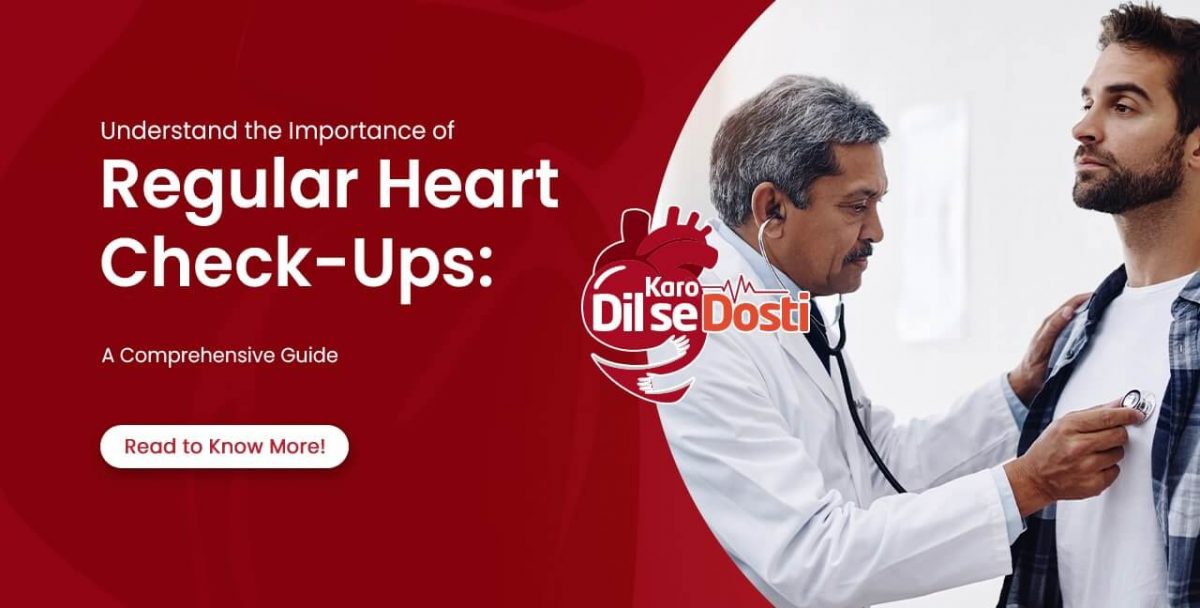
In today’s fast-paced life, we often tend to avoid self-care and place our physical and mental health in the back seat. This negligence can cause havoc in our lives and lead to severe health complications. When it comes to taking care of one’s health, the well-being of the heart should be the foremost priority. This comprehensive guide will delve into the importance of consistent cardiac evaluations and how these check-ups can aid in maintaining a healthy heart.
The Necessity of Routine Cardiac Evaluations
Routine cardiac check-ups are fundamental to early detection of potential health issues. Silent killers like high blood pressure, high cholesterol, and diabetes often go unnoticed until they’ve escalated into serious conditions. Regular screenings allow for early detection and management of these diseases.
The Advantage of Early Diagnosis
The primary objective of cardiac evaluations is to detect potential health risks early. This allows for a more targeted treatment strategy and minimizes future health complications.
Personalized Health Plans
Cardiac assessments aren’t a one-size-fits-all solution. They take into account individual factors such as family history, lifestyle, and personal health status to devise a personalized health strategy.
Cardiac Health as a Priority
Regular heart check-ups are crucial in maintaining overall health. They allow for early detection of potential cardiac issues, aid in managing existing problems, and identify risk factors. Regular visits to a cardiac specialist can prevent severe complications like heart attacks and strokes.
Key Tests and Screenings
Routine screenings form the cornerstone of cardiac health maintenance. These include:
- Blood Pressure: Regular blood pressure screenings are crucial as high blood pressure is a significant risk factor for heart disease and stroke.
- Lipid Profile: This test evaluates levels of LDL (bad cholesterol), HDL (good cholesterol), and triglycerides, providing critical information about cardiovascular risk.
- EKG/ECG: An electrocardiogram can identify irregular heart rhythms, providing vital clues about heart health.
- Stress Test: This test, often conducted with the patient walking on a treadmill, monitors heart rate during physical activity and helps identify issues that may not be noticeable at rest.
- Imaging Tests: Advanced imaging tests like cardiac MRI and CT scans provide more detailed information and are used in cases requiring in-depth investigation.
Risk Factors for Heart Disease
While some risk factors such as age, gender, and family history are beyond control, understanding these allows for better management of controllable risk factors. Lifestyle factors such as diet, physical activity, stress, and smoking can significantly impact heart health. Positive lifestyle changes can dramatically reduce the risk of heart disease.
Lifestyle Modifications
Adopting healthier lifestyle habits can significantly improve heart health. These include:
- Diet: A balanced diet rich in fruits, vegetables, and lean proteins can greatly aid in maintaining heart health.
- Exercise: Regular physical activity helps control weight, reduces stress, and strengthens the heart muscle.
- Smoking: Quitting smoking is one of the best things one can do for heart health.
- Alcohol: Excessive alcohol consumption can raise blood pressure. If you consume alcohol, it’s advised to do so in moderation.
Mental Health and Heart Health
Chronic stress and mental health issues like depression and anxiety can have significant impacts on heart health. Techniques such as mindfulness, positive thinking, and meditation can greatly aid in managing stress and promoting mental well-being.
The Recommended Frequency of Cardiac Check-ups
The frequency of heart screenings can vary depending on individual factors like age, risk factors, and medical history. However, it’s generally recommended that adults undergo cardiac evaluations every 4 to 6 years in their 20s and 30s. As one ages or if one has specific risk factors like high blood pressure or diabetes, more frequent check-ups may be required.
In conclusion, regular heart check-ups are not a mere formality but an essential aspect of maintaining heart health. These assessments play a critical role in early detection, personalized risk assessment, and promoting heart-healthy lifestyles. By prioritizing your heart health and scheduling regular evaluations, you can take proactive steps towards a longer and healthier life.

 Call-an-Ambulance
Call-an-Ambulance



